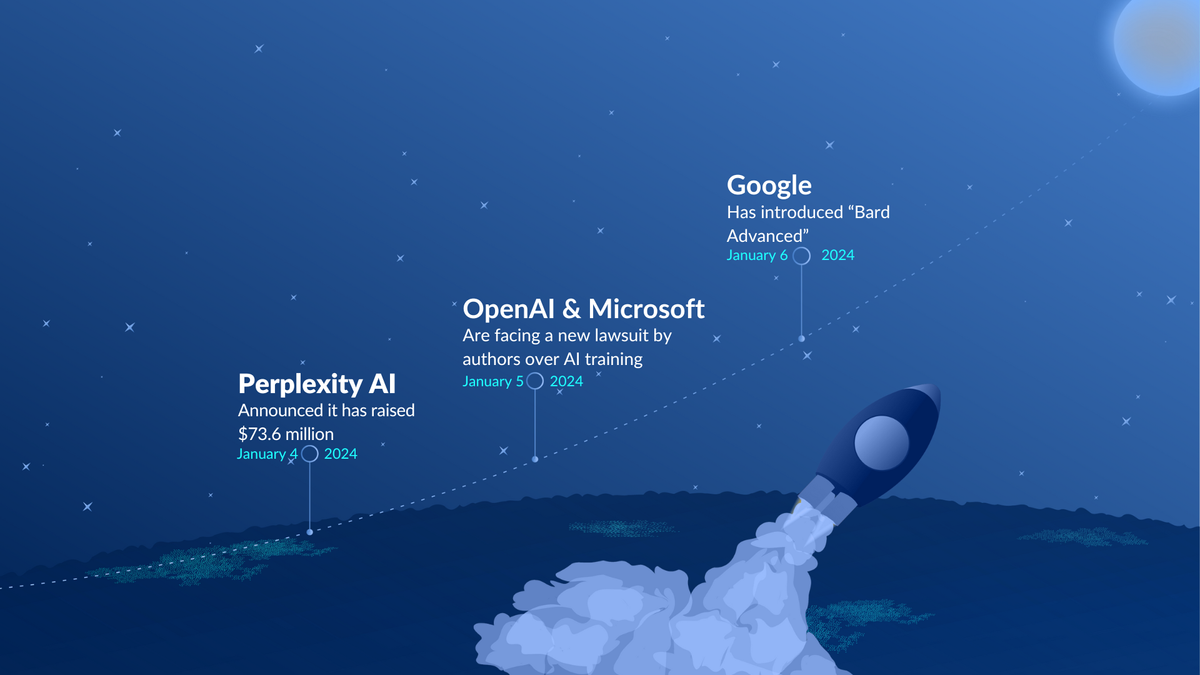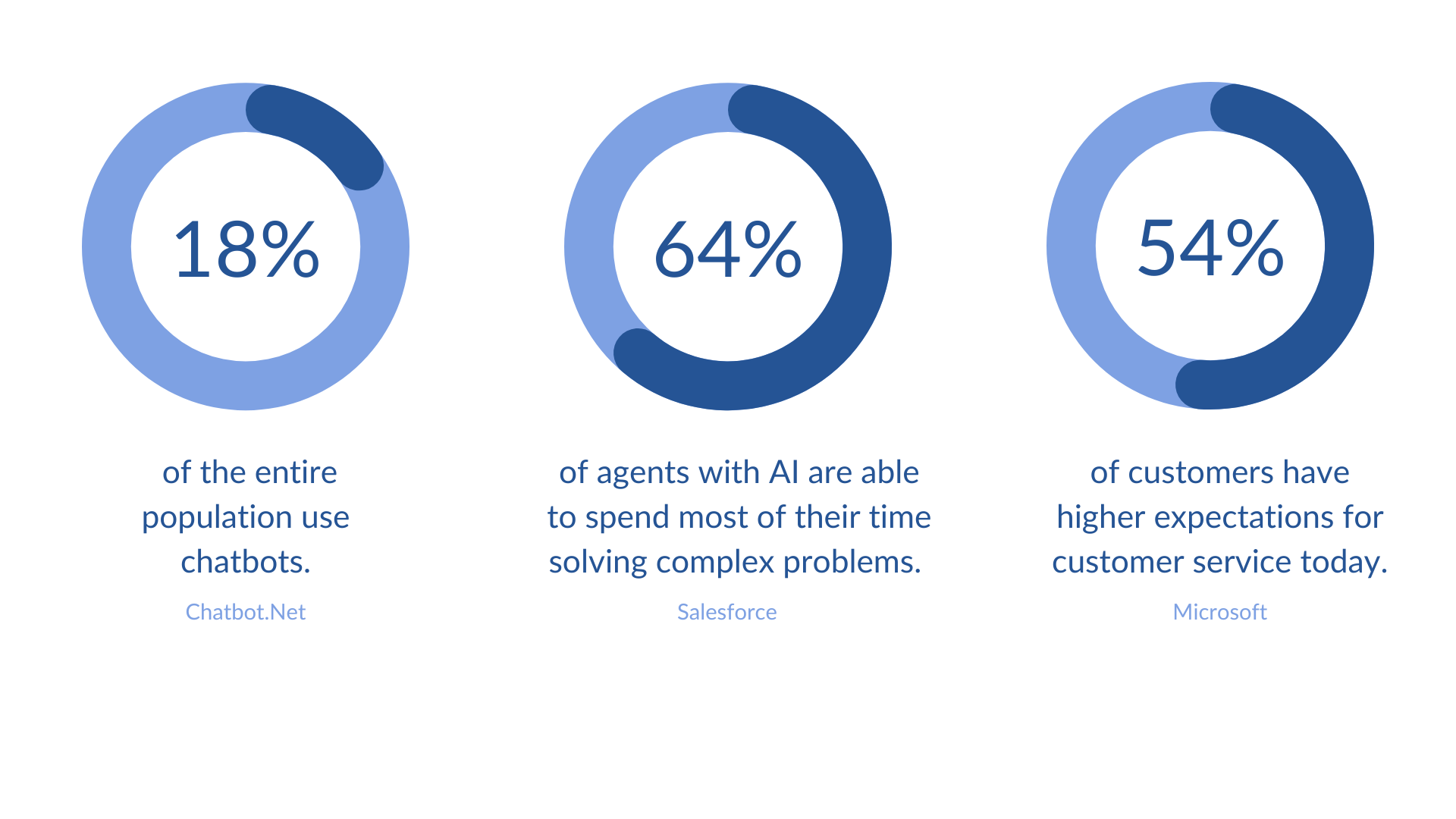Powered By Data, January 8, 2024
Keep up-to-date on conversational AI & chatbots with fascinating data points and weekly news.

Data Points

Last Week in Conversational AI
- Perplexity AI, an AI-powered search engine, recently announced it has raised $73.6 million in a funding round led by IVP, with additional investments from NEA, Databricks Ventures, and notable individuals like Jeff Bezos. The round values Perplexity at $520 million post-money. The startup was founded in August 2022 and offers a chatbot-like interface for natural language queries, providing responses with source citations. It aims to offer a more robust search experience with features such as search filtering and discovery options. Perplexity operates on a subscription-based model, with a Pro plan costing $20 per month, allowing users to switch between various GenAI models and unlock additional features. The startup plans to use the funding to expand its team and build new product functionality.
Read More - Google has introduced "Bard Advanced," an upgraded version of ChatGPT and Microsoft Copilot counterparts. Powered by Gemini Ultra, Google's large language model, Bard Advanced is designed to offer a more sophisticated and multifaceted user experience. The release was first hinted at by developer Dylan Roussel, who revealed its availability through a paid subscription on Google One. Bard Advanced is described as a "more capable large language model with advanced math and reasoning skills." Developers have complimentary access to Gemini Pro and Gemini Pro Vision through Google AI Studio. Google plans to launch Gemini Ultra in the early months of the coming year.
Read More - OpenAI and its investor Microsoft are facing a new lawsuit filed by nonfiction authors Nicholas Basbanes and Nicholas Gage. The authors allege that their works were misused to train artificial intelligence models, including OpenAI's GPT language model, without proper consent, infringing their copyrights. This proposed class action adds to a series of lawsuits by various authors against tech companies over the alleged use of their work to train AI programs. The complaint comes shortly after The New York Times filed a lawsuit against OpenAI and Microsoft for similar reasons.
Read More
